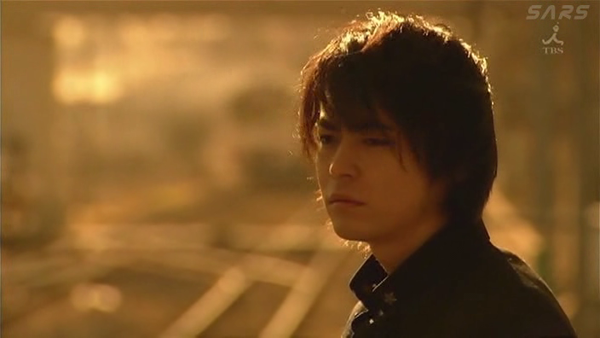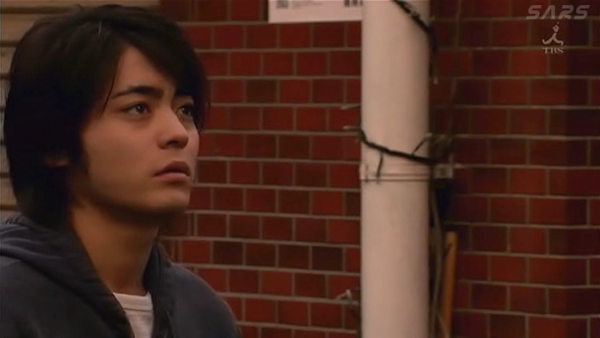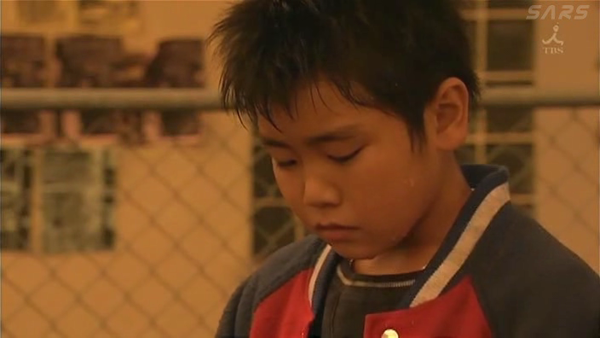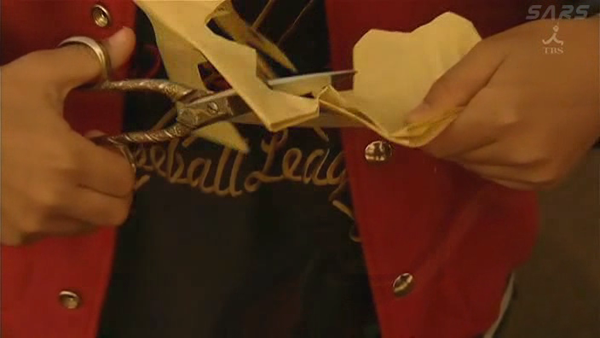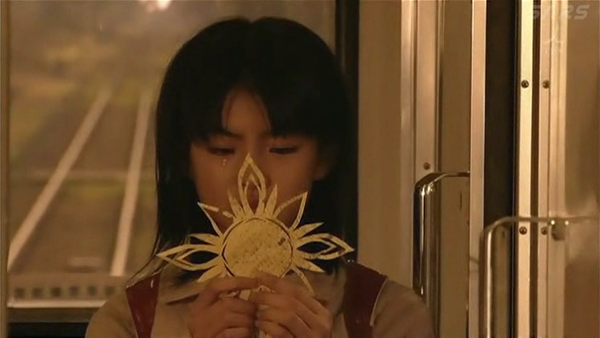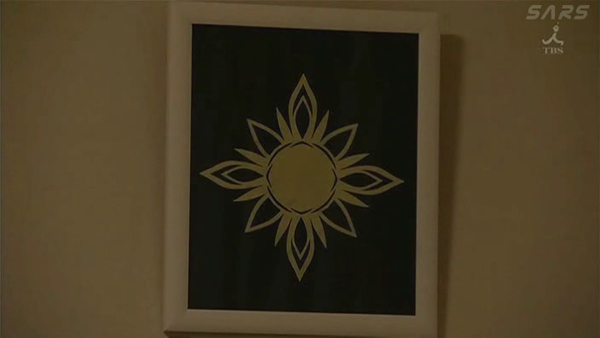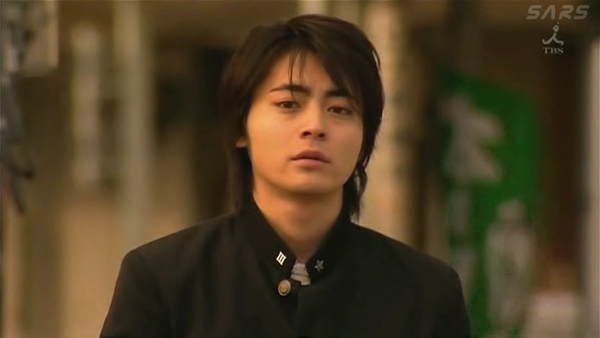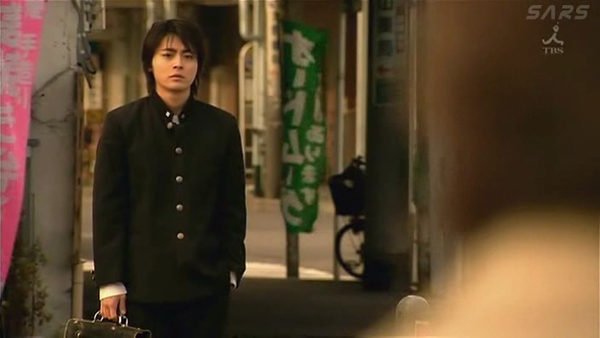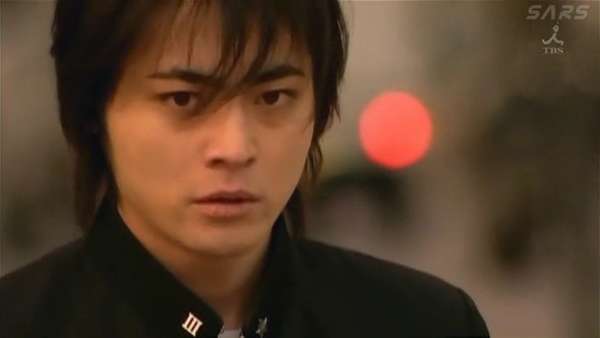Jdrama: Byakuyakou, episode 1 overview & picspam
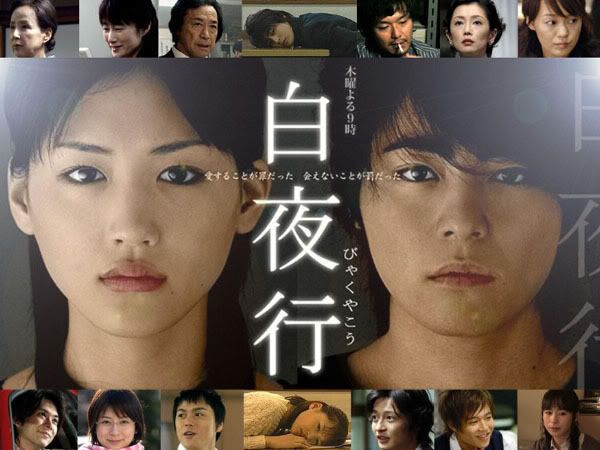
Byakuyakou (winter 2006), starring Ayase Haruka and Yamada Takayuki, is the tale of star-crossed childhood first-loves Yukiho and Ryoji. As eleven-year old children, terrible circumstances cause them to kill their parents, and although they struggle to move beyond their shared past, it haunts them into their youth and adulthood, sending them on an increasingly-destructive path.
This is not a drama for the faint of heart. It's very dark, quite disturbing in places, and suffused with a deep melancholic sense of futility. Yukiho and Ryoji are not always likeable characters. The story progressively grows darker by the episode. Just when you think things are going to get better, they usually get worse, often much worse.
Not to mention that this is a drama that basically tells you the ending in the first five minutes or so.
Now if that didn't make you back away not-so-slowly...;)
Despite all of that, or maybe because of it, I love this drama. It's gorgeously photographed, intense, complex, absorbing and marvelously consistent. It's among the tightest-written dramas I've seen, from start to finish - I felt like it was very carefully constructed on several levels, from the characterization to the visuals. Even though the viewer is often hit over the head with the melodrama, and despite the constant flashbacks and voice-over narration, still, I enjoyed this drama - at least as much as one can enjoy a drama about two lovers who engage in rather nasty criminal activities in order to someday find happiness.
The first episode is long - about 90 minutes, and it somewhat leisurely sets the stage for everything that comes after. I think this is the hardest episode to watch, partly because it's so long, and partly because it takes its time in introducing and developing the characters and relationships. Since everything that happens to Yukiho and Ryoji is rooted in their childhood, it's important for us to be very grounded in understanding what their lives are like, and understanding the situation that inextricably binds them together.
When we first meet the boy Ryoji, he's an unhappy child who doesn't have the opportunities of his peers - while they might play together sometimes, the other boys run off to cram school while Ryoji is left lonely and on his own. We also see that his unhappiness largely comes from an unpleasant home life in which he must live with the knowledge that his mother is having an affair with an employee of his father's pawn shop. His parents aren't loving toward him at all, and don't seem to pay much attention to Ryoji.
One day, he sees a young girl crouching beside a stream in a ditch, and he is intrigued. When he encounters her again, he works very hard to talk to her, but Yukiho is skittish and unfriendly, clearly not interested in making friends - it seems obvious that she is an unhappy and troubled child. But Ryoji doesn't give up, and eventually his persistence is rewarded. There are some lovely scenes in the first episode as the children build their friendship, but that first one is the best: Yukiho asks him about a flower that blooms in a ditch, so he researches it. Ryoji has a tremendous gift for creating beautiful things from paper and scissors, which he carries with him at all times, so one day he makes a gorgeous lotus flower out of paper that he places in the exact spot where he first saw her. Yukiho is overwhelmed. She returns the favor by showing him a "moonflower"- the beautiful reflection of the full moon in the water of the stream. This moment stays with the children for the rest of their lives as something precious, a gift that they cherish.
Their friendship blossoms after this, and they develop a quiet relationship that provides them both with comfort. They meet at the library to read Gone with the Wind on opposite sides of a table, smiling at each other over the top of their books.
We also learn that Yukiho's mother is a hopeless drunk who is prostituting her eleven-year-old daughter to pay off their debts.
Their friendship begins to unravel when one day Ryoji and Yukiho bump into Ryoji's father, which causes Yukiho to run away and Ryoji's father forbids Ryoji from seeing Yukiho again because her mother is a drunk. Yukiho stops meeting him, and Ryoji is in an agony to know what went wrong.
We, the audience, however, are not a frustrated eleven-year-old boy, so we can put two and two together.
Ryoji finally discovers the truth on one terrible rainy November day when he sees an unwilling Yukiho being dragged down the street by her mother. He follows them into the abandoned partially-constructed building he used to play in, and he sees Yukiho's mother lock her daughter into a room and then leave. Ryoji doesn't give up, though - he knows the building fairly well from all the playing, so he crawls into one of the air vent ducts and makes his way to the room where Yukiho was locked. What he sees is horrifying, and everything becomes clear.
Fortunately we aren't shown too much, but it's quite enough to infer what's happening - and what we see is awful. Yukiho is naked on a table and being photographed...by Ryoji's father.
Ryoji climbs down from the air vent and confronts his father while Yukiho scrambles off the table and huddles miserably on the floor wrapped in a cloth. Ryoji's father makes a pathetic attempt to explain - he even goes as far as to say that it's consensual - and that "it's not like I love her. Besides, if it's for money-" (the implication being that if he pays for something, it's okay????), but Ryoji interrupts him by plunging his beloved scissors into his father's chest, killing him.
This single act sets into motion a chain of events that spans the next fifteen years.
Ryoji is horrified and distraught at what he's done, but Yukiho is the stronger of the two of them (I suppose she would have to be to have survived the child prostitution, which from other indicators seems to have gone on for a long time):
Yukiho: You didn't kill him! [Ryoji looks up at her tearfully] It's unpleasant to say this to you, but I killed him. So many times. I killed him in my head. [she pries the bloody scissors from Ryoji's hands and plasters on a fake smile] Therefore, the one who killed him...was me.
Later, after they've arranged the crime scene and blocked the door so that it will take longer to find the body, they crawl out the air ducts.
Yukiho: Will you make me a promise? We've never met before, we've never talked before. We don't even know each other's names. We are complete strangers, okay?
Ryoji: Why are you saying this?
Yukiho: [gently] Because I think it's for the best. I'll definitely contact you. Trust me.
The children part and the nightmare truly begins. The detective, Sasagaki, is involved in investigating the death of Ryoji's father, which leads him first to Ryoji's home where his mother's lover (who already suspects that Ryoji killed his father) realizes that he needs to protect himself, and by extension Ryoji and Ryoji's mother from suspicion, so the three of them coordinate their stories; Yukiho later decides that in order to prevent any hint of suspicion from falling on Ryoji, she must implicate her mother in the murder, so she plants the scissors in her home, claiming that they belonged to her mother, and the detectives incorrectly conclude from various pieces of information that Yukiho's mother was having an affair with Ryoji's father, and that she must have killed Ryoji's father. Yukiho then stages her mother's suicide by turning the gas on in their apartment, also intending to kill herself, but for some reason she's rescued before she dies. Yukiho's mother is already gone by this point.
Despite Yukiho's efforts, Sasagaki, for various reasons, doesn't entirely buy it, although he's forced to go along with the official conclusion - from the first time he meets Yukiho, he wonders if she was somehow involved in the murder, and seeing her in the hospital after her mother's suicide solidifies his feeling that she bears some guilt in the matter. He also notices many things about the children, and he remembers that they both read Gone With the Wind (surely unusual reading material for seemingly unrelated eleven-year-old children). On such slender misgivings, Sasagaki forms the beginnings of an obsession with the children that haunts not only him, but Yukiho and Ryoji throughout the drama.
Note of interest: Ryoji's mother, when asked about the relationship between Ryoji and his father, tells Sasagaki that they waited a while to have Ryoji, and that Kirihara Yosuke was a good father. Which is a blatant lie, as we discover much later in the drama, and further indicates the kind of loveless home in which he was raised.
Final Analysis
The acting is really beautiful throughout this first episode - the child actors who portray the young Ryoji and Yukiho have a heavy responsibility of laying the intense emotional foundations for the rest of the drama, and they do a tremendous job. These two children are lost souls who find comfort in one another during a difficult time in their lives, and just when they think they've found an escape from their unhappiness, it's cruelly wrenched away from them. It's a terrible burden they carry, the guilt and the responsibility for their murders of their parents - and it shapes them in unimaginable ways.
Yukiho is perhaps already too damaged by the time she meets Ryoji - there's a scary moment early in their friendship in which she encourages him to stand in front of an oncoming truck. That kind of thrill-seeking, death-defying behavior (I think) could only come from a child who is already too far gone. A childhood of rape and prostitution created a monster inside her. She has pangs of conscience occasionally in which she wonders whether it's right to hurt or destroy others in order to live herself, but ultimately her instinct for survival wins out and leads her into terrible choices.
Ryoji is the more fragile of the two, the one who looks to her for his strength and guidance, and when they are separated, he is completely adrift. He tries to be her conscience, her better half, because he wants to believe that they can live in a future where they no longer have to hide and commit crimes in order to survive. But life and circumstances constantly conspire against them. When Ryoji and Yukiho first became friends, they spoke of a time machine, and Yukiho asked him if he would go to the future or the past. Ryoji wanted to go to the past, which makes sense because he always wants to go back to those perfect days when they were dear friends who sought and gave comfort without the taint of their parents murders to poison the rest of their days. Yukiho always wanted to go to the future because her childhood was so unbearable.
We don't see Ayase and Yamada until nearly the end of the first episode, seven years after the incident that destroyed their childhood forever. And as becomes clear, their past continues to haunt both of them, pulling them back every time they try to move on.
The drama opens on Christmas Eve, 2005:
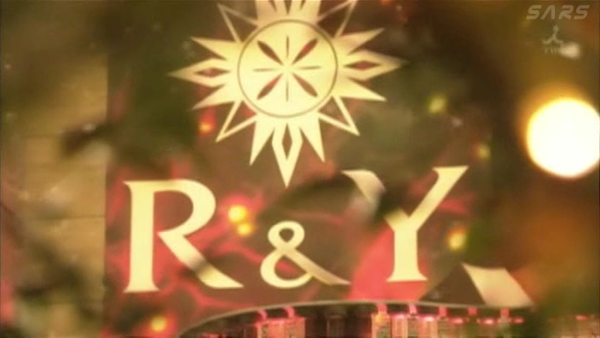
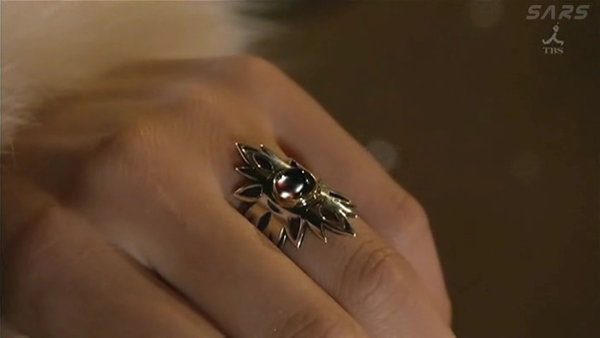
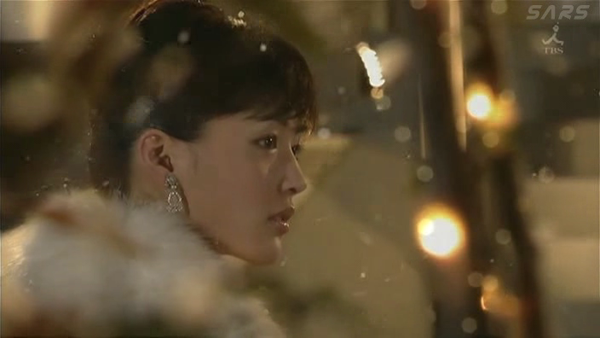
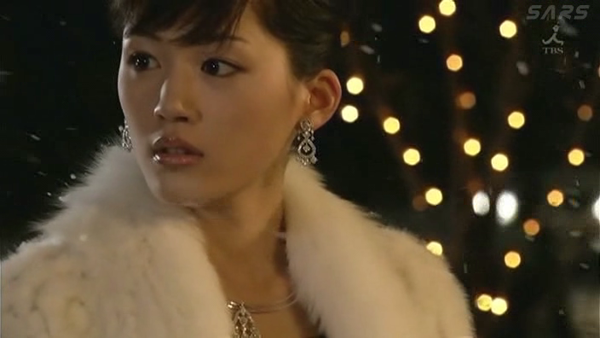
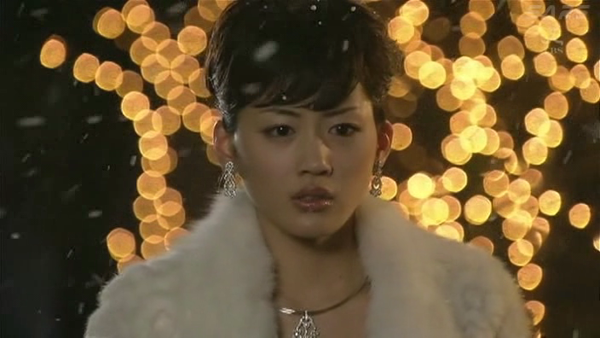
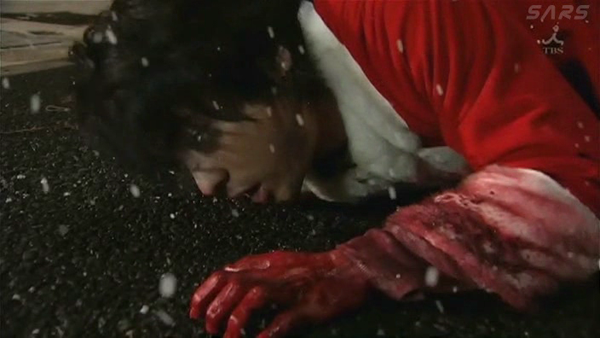
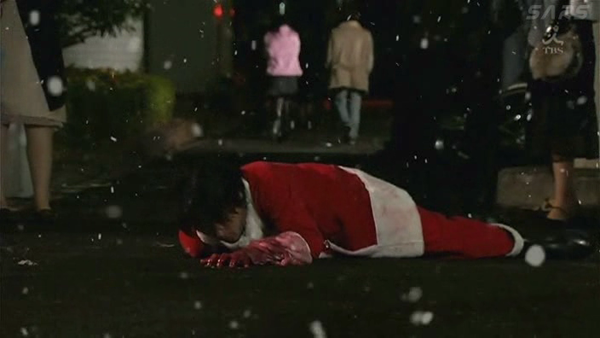
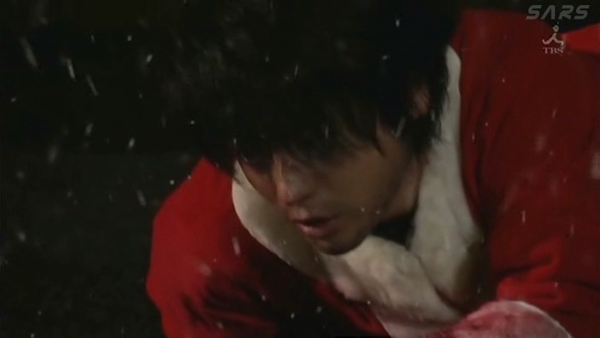
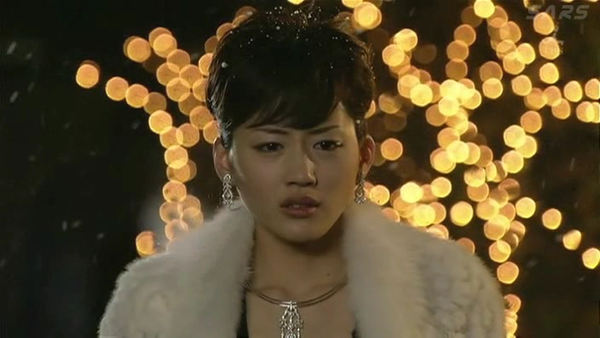
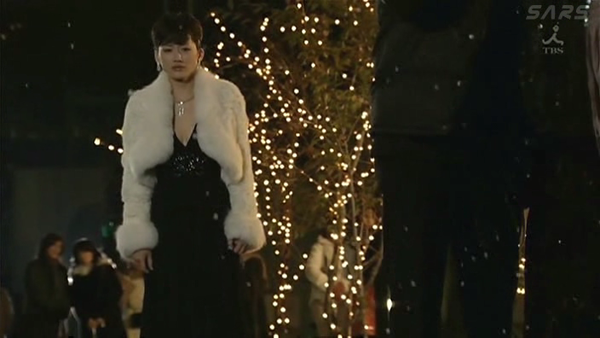
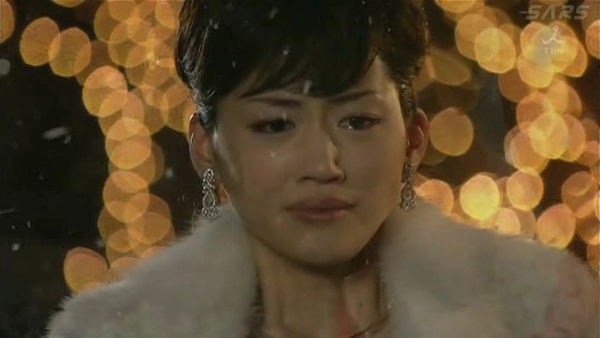
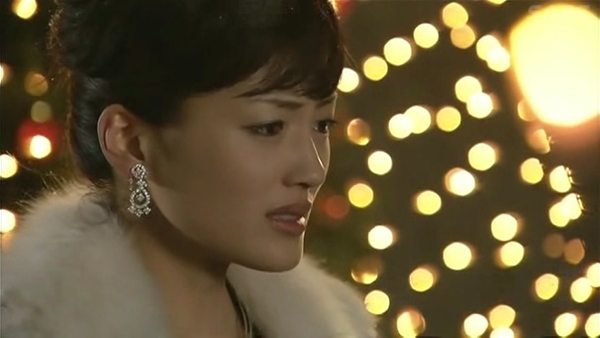
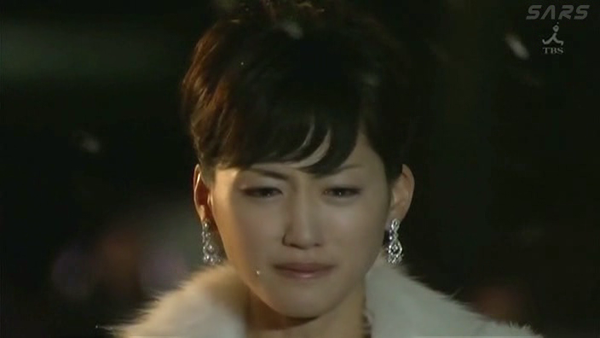
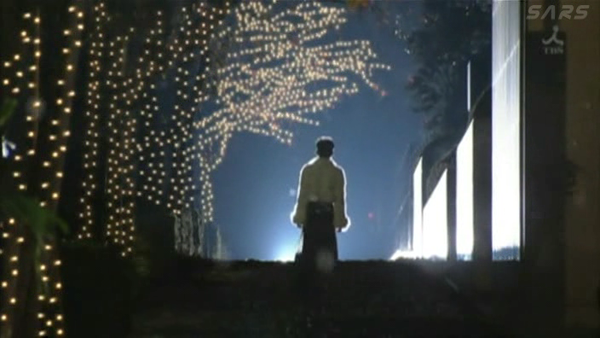
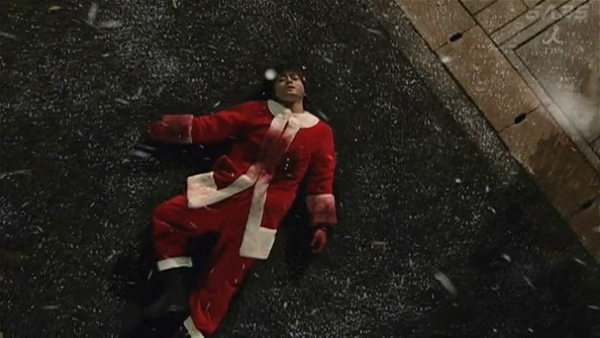
And then we go back to 1991, when it all began:


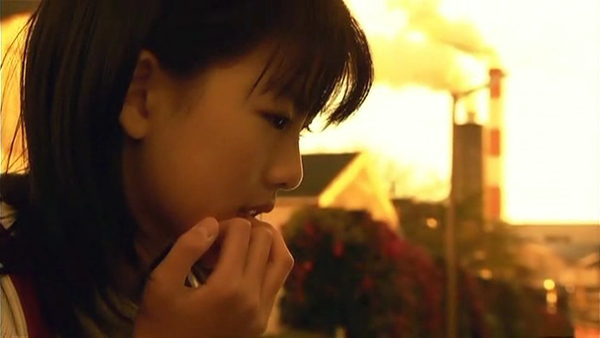
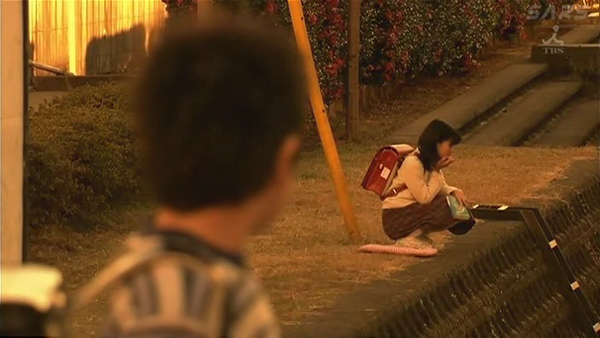
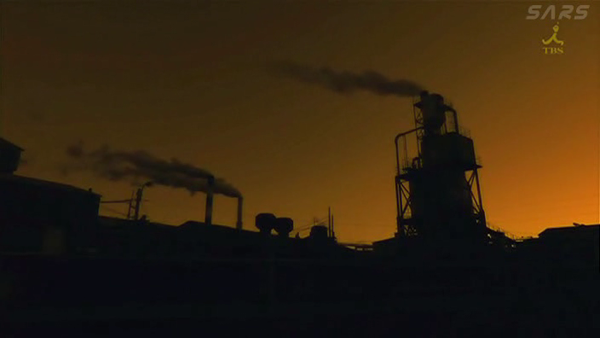
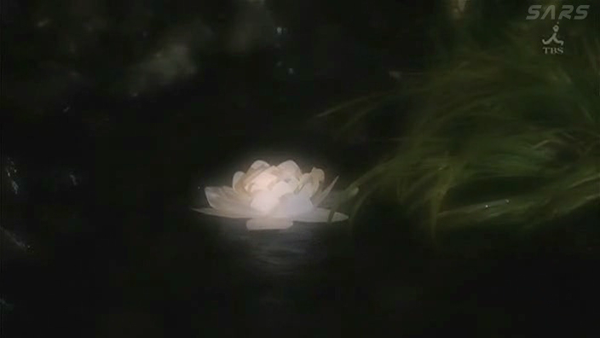
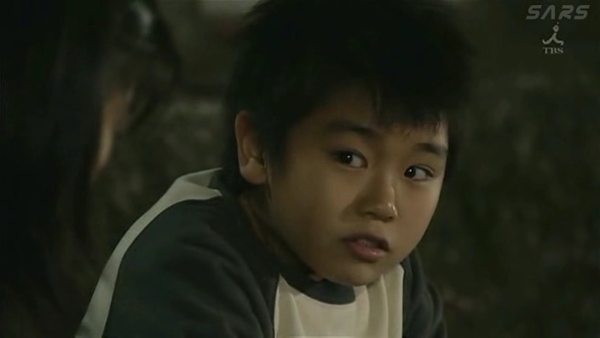
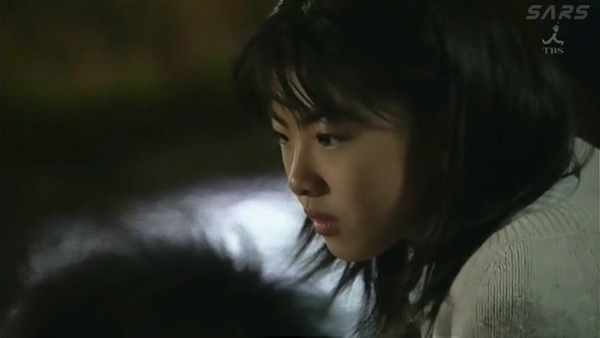
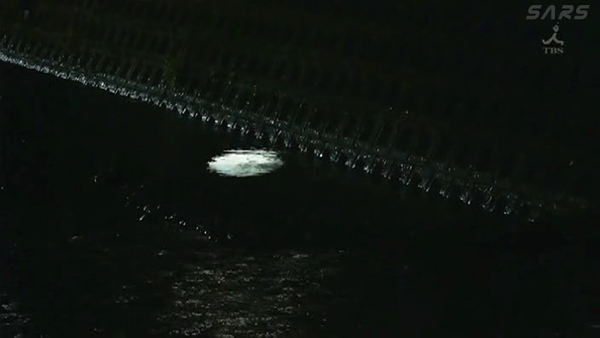
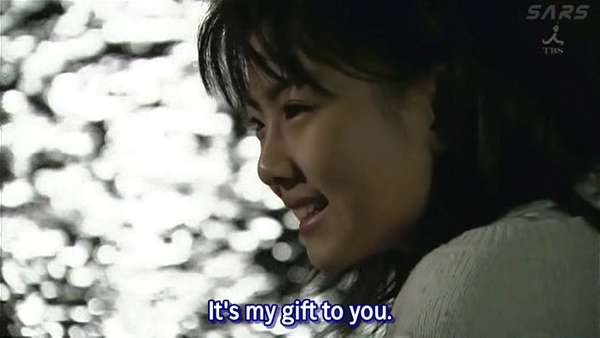
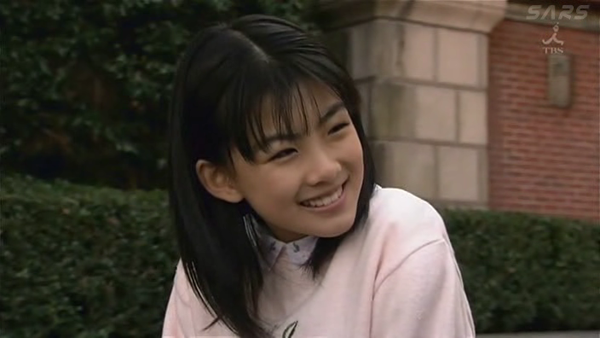
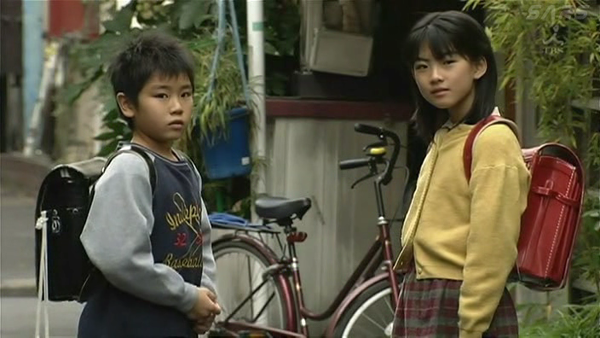
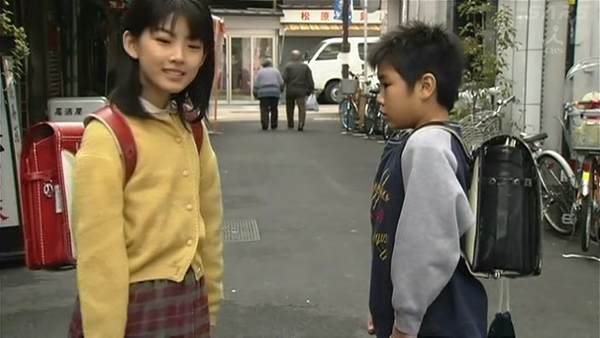
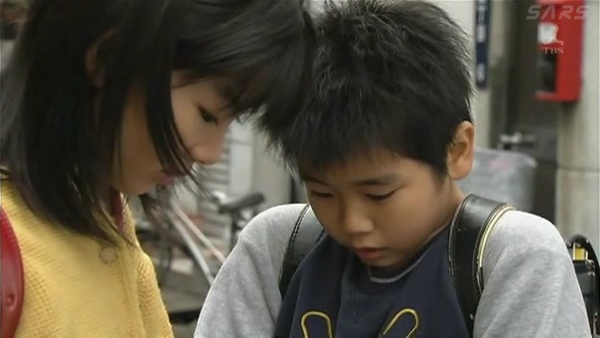
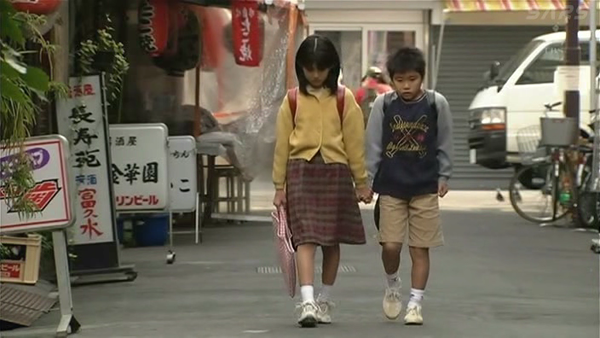
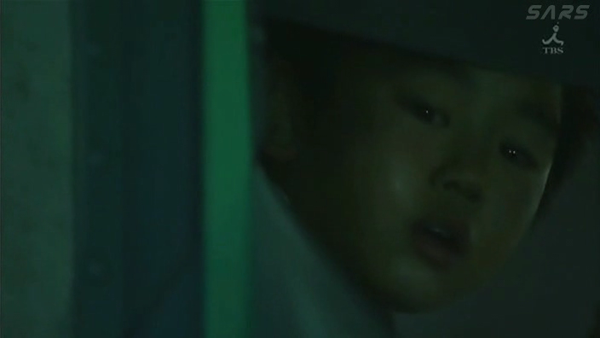
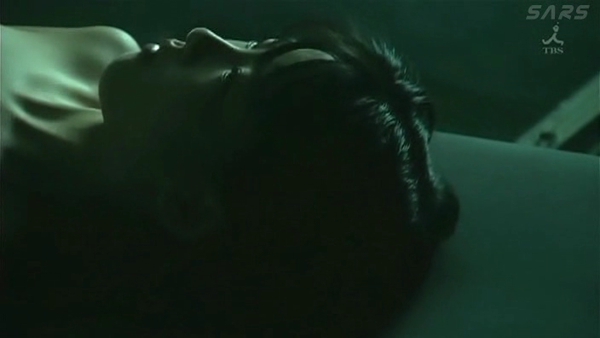
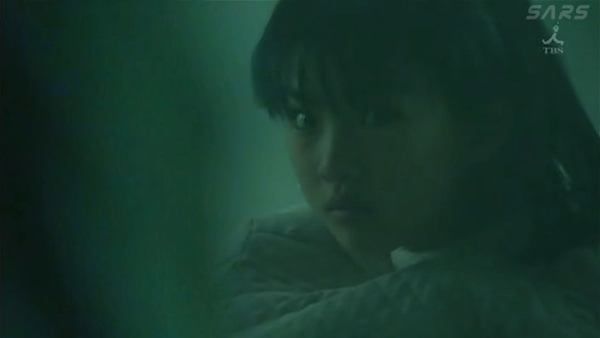
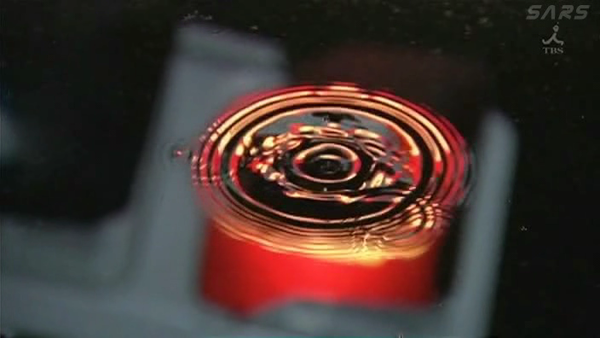
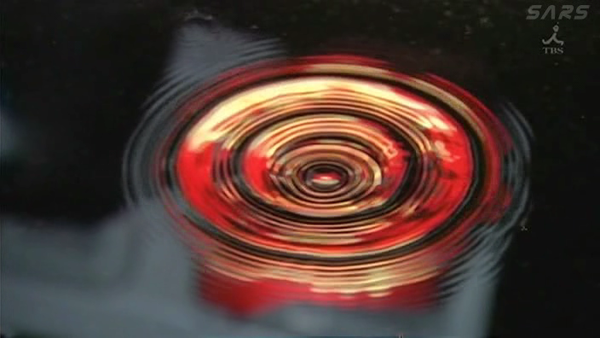
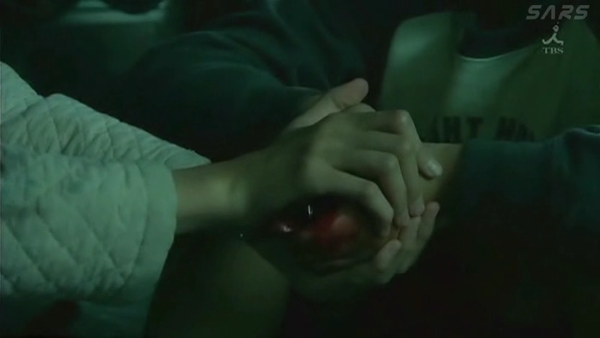
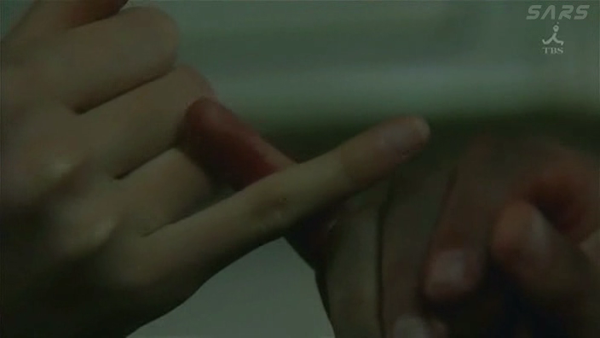
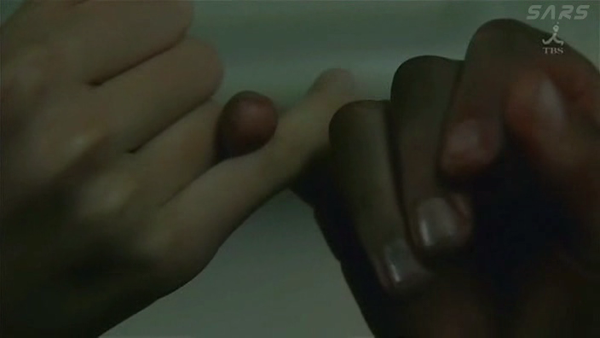
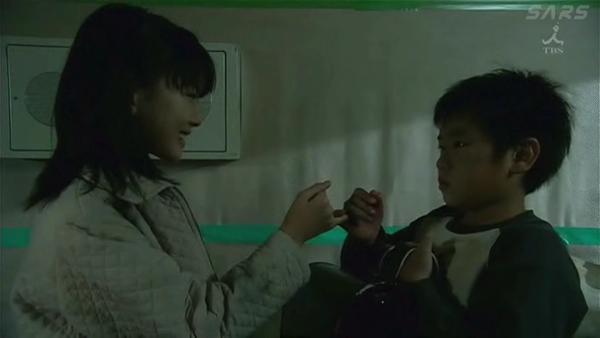
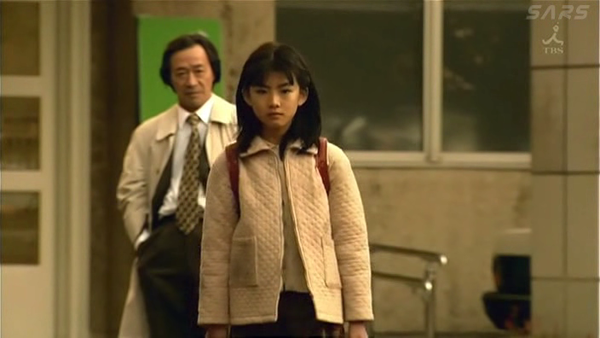
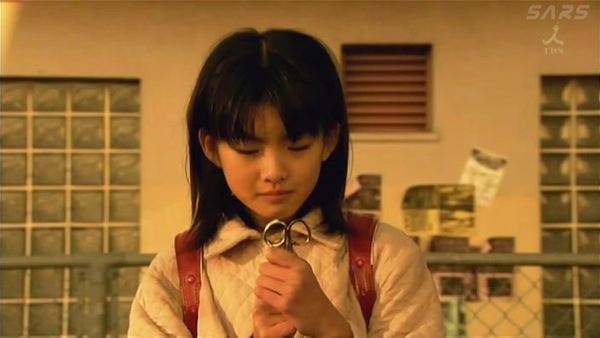
And then the end of the episode flashes forward to 1998:
